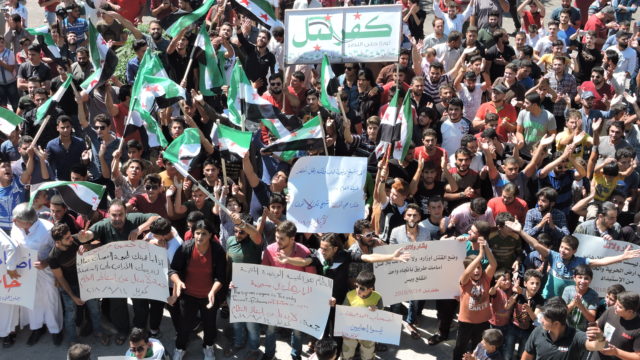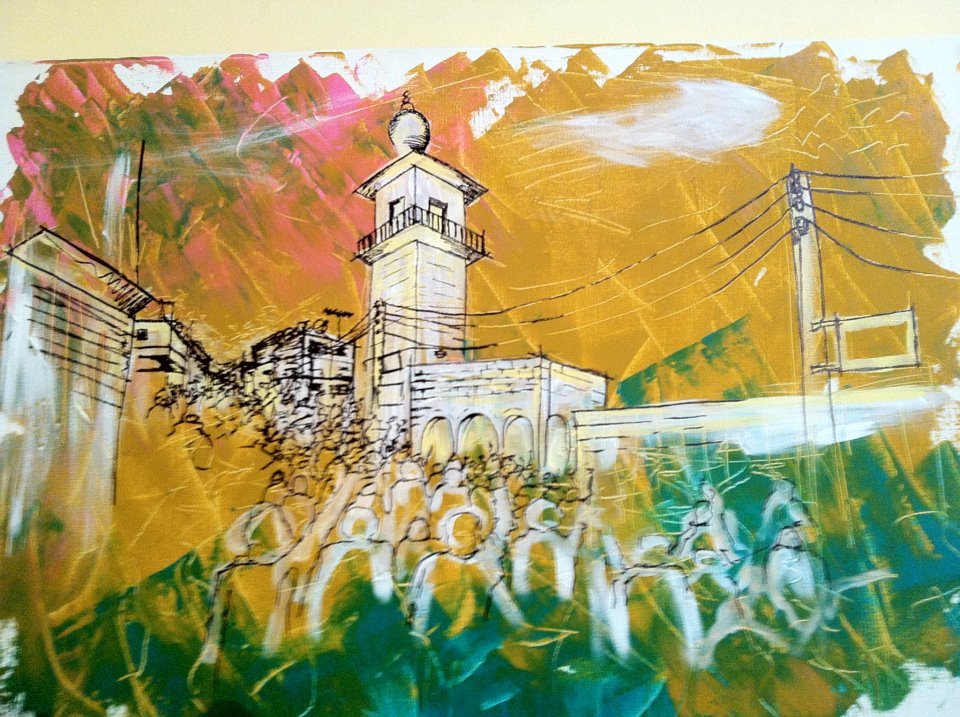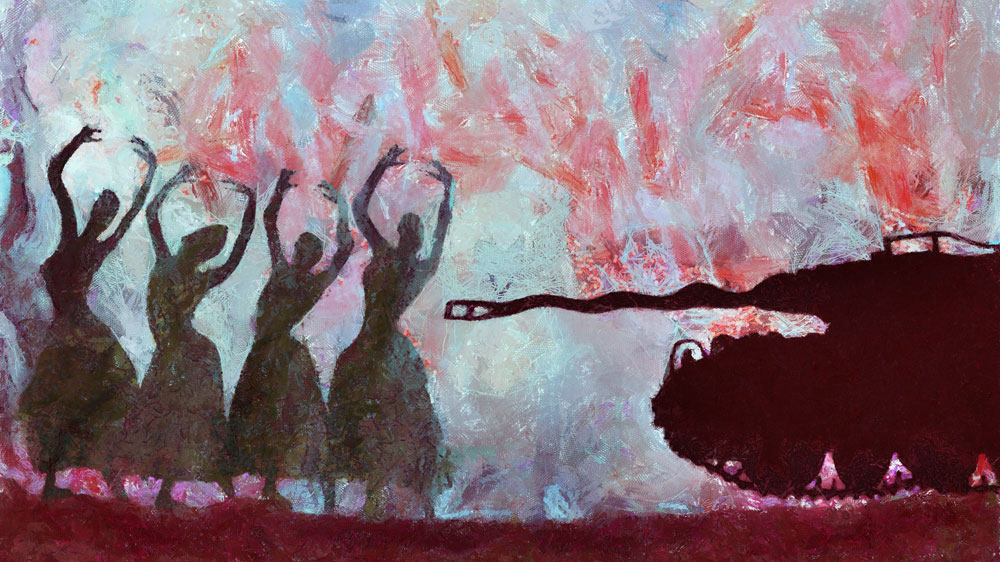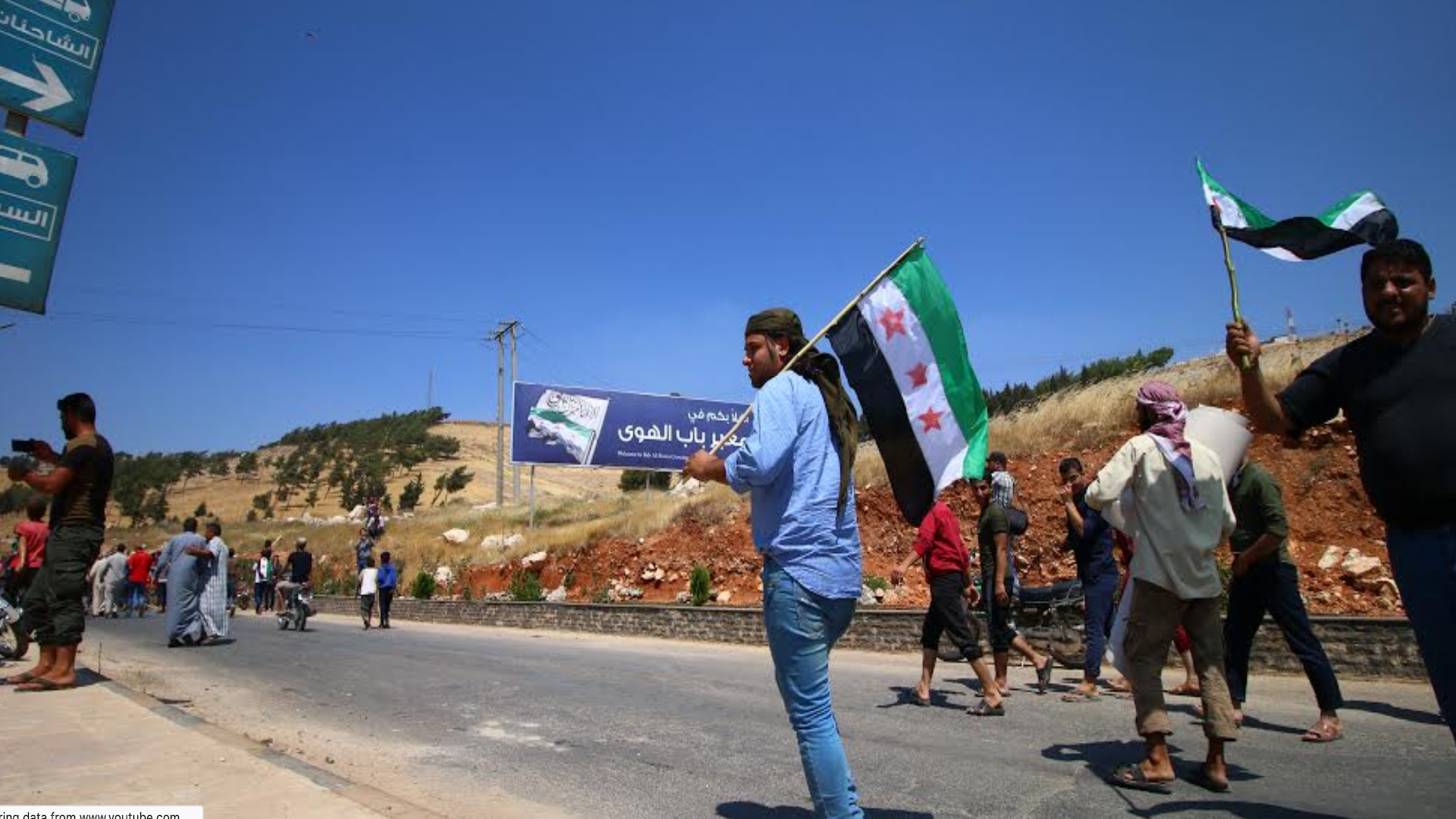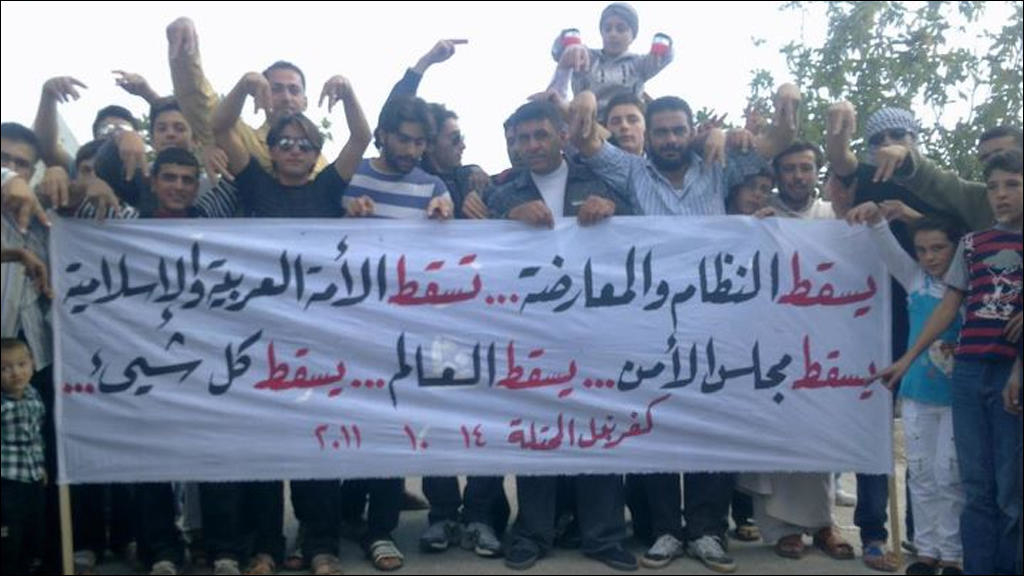Today is a sad day for the people of Idlib.
Many areas in the province’s south lay in ruins, entire streets demolished by intense bombardment. Houses, community centers, schools have been razed to the ground.
However, this is not the first time that the women of Idlib have asked themselves how their families will survive. In fact, they’ve been asking themselves this question every single day, watching as the bombs have fallen around them on a daily basis for the past eight months. Will they be able to leave the house today? Should they stay home and console their children?
Living with these intense, daily fears over the course of eight years of brutal war and emotional and physical devastation, the small daily deeds of Idlib's women have become heroic tasks.
When peaceful protests first began in Syria in 2011, Idlib saw its own developments rapidly unfold. Civil society movements and local self-administration initiatives blossomed and soon made the traditionally conservative province in Syria’s northwest a leading example of resistance against Assad. And in contrast to Aleppo and Eastern Ghouta, Idlib until today has resisted the grasp of the regime.
However, the people pay a heavy price. More than a million internally displaced persons have sought refuge in Idlib, and worse still is the fact that Syrian and Russian forces have been heavily bombarding the province since April.
Everyday heroic acts
Most of the media coverage on Idlib focuses on the military aspect, but this distracts us from the fact that the majority of those trapped in Idlib are civilians—according to the UN, more than 99 percent of them, to be exact. How do these people survive day to day, under constant bombardment and with no way out? Those who claim that there are “no good people” left in Syria fail to acknowledge the hundreds of thousands of women and men struggling each day to achieve their vision of a more just Syria and who somehow keep civilian life going.
With Idlib on the brink of a humanitarian disaster, where will citizens go?
17 September 2018
One of the civil society organisations formed when protests began is called Women Now for Development, a women’s rights organisation run by Syrian women. The organisation offers women and girls educational courses, psycho-social support and leadership training in community centers. Devastatingly, one of the buildings that recently fell victim to the fierce bombing of the past week was the Women Now center in Maarat a-Numan, which first opened its doors in 2014. The Maarat a-Numan center was a vibrant space for learning, exchanging and community support.
For more than three years, I've supported these women in their struggle for participation and freedoms in Syria. So I know that the daily heroic acts of these women are missing from the discussion on Syria.
After the chemical attack on Khan Sheikoun in April 2017, I opened voice message after voice message from one of my colleagues, who was describing the horrors that were unfolding. One of the women told me that her husband worked in the only hospital in the nearby town of Maarat a-Numan. Whatever he tried, and no matter how much he washed them, he could not get the poisonous chemicals off the victims. When he finally returned home at night, completely exhausted, his wife and children felt a burning in their eyes because the chemicals had clung to his skin and clothing.
Back then, many local organisation were considering suspending their activities. The women fiercely protested.
No matter the danger, they were still determined. “Every minute that we spend sitting at home waiting is much worse than the danger out there. Waiting is worse than death,” she said.
These everyday heroic acts are a necessity to keep normal life running—especially for the children, who often don’t know anything but war.
Abir in Idlib wrote in May 2019: “Our area was hit three times at 5am yesterday, we're sleeping in the hallway while the kids are sleeping in the bathroom. It's safer in the bathrooms as there are two ceilings on the top rather than one. My daughter is one year and a half, she's terrified by the loud bombardment. I keep telling my daughter that it's a game, and every time a military plane passes by, I tell her: 'Get ready for the bang, they're playing with us!’”
The mothers play down their own fears to make the children believe things are normal. Things have not been normal for almost 10 years now.
When working with women inside Syria, childcare is especially important. Women Now's centers offer childcare so that women can participate in the courses safe in the knowledge that their children are being well cared for. They also represent an alternative to the completely devastated infrastructure in Idlib—for example in Saraqeb, a town that has been particularly plagued by war.
A child-minder there, Bushra, remembered: “When the bombing began yesterday, we were at the center and the children were at day care, far from their mothers. That meant they were twice as frightened as they would have otherwise been. More than 20 children crowded around me, crying and screaming loudly. It was not long before each mother had come and taken her child. But for those few short minutes when I was alone with the children, I wanted nothing more than to have arms so long that I could embrace each and every one of them and make them feel safe.”
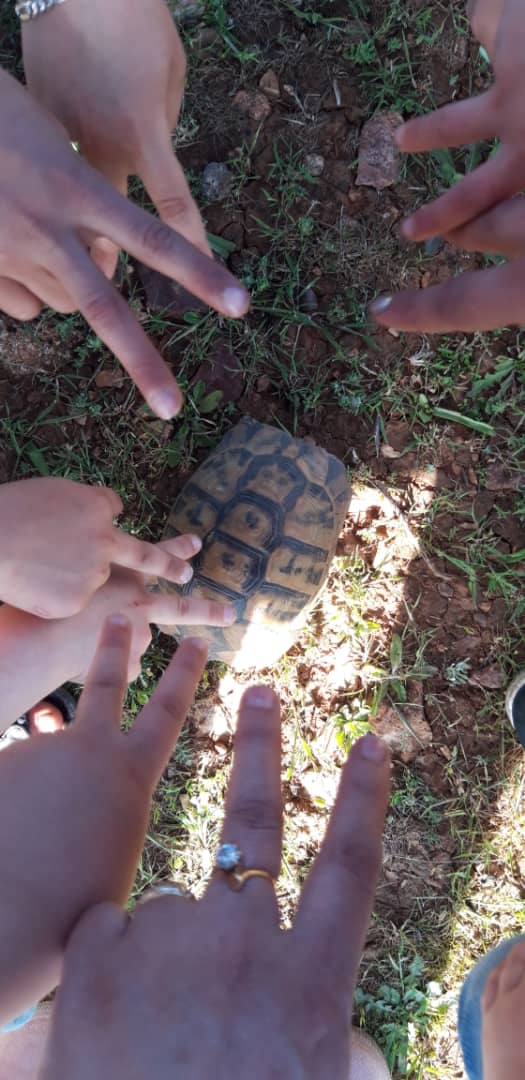
'We will go on, no matter what!'
In one of the few short breaks in the military campaign against rebel-held Idlib that has been raging for well over half a year, I received a curious image. In the picture, there was a turtle and hands in victory signs. One of the teachers in the center had decided to take the short break to take her children outside. They had been hiding in their homes for days, sometimes even under their beds. When the bombardment became less vicious, the children started begging their mothers to go outside. Since it was the end of Ramadan, she caved and took them into nature. They found the turtle on the ground and took the picture to show that there is still normal life in Idlib. It was another heroic act. “The children should live normally as far as it is possible. We love life!”
People often ask me: “What is next for Syria?"
The women have a clear answer: “We will go on, no matter what!”
They do not want to surrender, to give in. They have fought for a lot, and achieved a lot, in the last few years that they don’t want to give up. They have taken on new tasks previously done only by men, but which they have taken on since many of the men are now either deceased, detained or severely traumatised. This makes them all the more determined with regards to the Assad regime, which they never want to live under ever again. This is precisely the same regime that they revolted against, a regime that tortures and oppresses.
As Nebal, one of Women Now's French language teachers, put it: “The same war that killed many things in us also killed our fear of many things.”
Looking at these small, everyday heroic acts by the women of Idlib gives us a clearer idea about the future of Syria than just obsessively analysing the militias, armies and terrorists in the conflict.
Despite all the hardships, the incredible will for a better future of the people has been clear to see in recent weeks. Whenever the fighter jets take a break from bombing civilians, people return to the streets to demand their freedom and the fall of Assad. This rebellious spirit has not been broken by almost 10 years of brutal war.
But it's that same spirit that will shape the future of the country. In the video published by Women Now showing the bombed-out center, the caption reads: “This is not the future we waited for, and this can’t be the end.”
The regime may have militarily won back most of Syria, but the hearts of its people will never be conquered.
A version of this article was originally published in German on the Heinrich Böll Foundation's blog. The original article can be read here.



